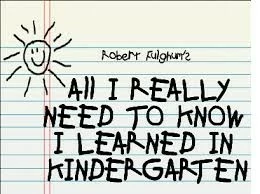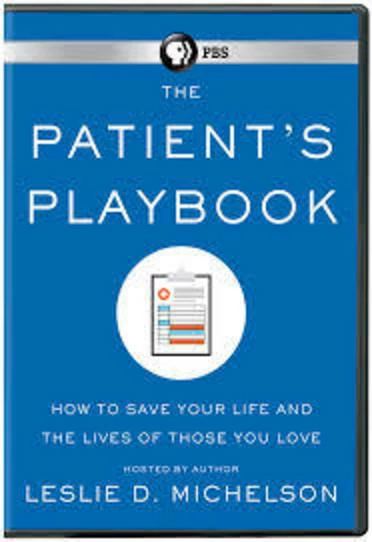
The Power of Visiting with Intention
Thirty plus years ago....
Robert Fulghum published “All I Really Need to Know I learned in Kindergarten” a simple read that became a phenomenal #1 New York Times bestseller and translated into dozens of languages internationally.
The second reason why this simple book resonates is these upcoming holidays should remind us to tune out the noise around us and focus on what is important. To use these wonderful homeward-bound visits to pay attention to little things; aware of the surroundings of our parents and loved ones.
It is the season to visit with intention with what Fulghum floats as this: “Remember the Dick and Jane books and the first word you learned – the biggest word of all – LOOK.

The Power of the Holiday "LOOK"
I know the benefits of hiring “me” to help support seniors in their journey of aging. But, making a case for my agency is not helpful to building a case for more help around the house for an adult child who has just journeyed home to find a parent in distress. It is important to first understand the signs that Mom and Dad, or a beloved aunt, grandmother or loved one is flagging. From years of study, we now understand the indications that something may be amiss. As visiting children and loved ones, your fresh eyes, ears, and sensibilities are well poised to pick up on signals:
- Dramatic changes in physical appearance; weight loss or gain, unexplained bruises or injuries
- Loss of interest in hobbies and activities
- Changes in mood or dramatic mood swings
- Consistent demonstration of poor judgement (falling for scams, giving money away)
- Medication mix-ups, forgetting to take
- Sleeping the day away
- Missed appointments
- Poor hygiene: unkempt hair, grooming, dirty clothes, infrequent bathing
- Neglected household: no food in fridge, dirty house, unpaid bills, clutter, utilities shut off
- Fear of leaving the house; of driving and unexplained dents in car
When you are visiting with intention, one or more of these issues will be revealed through the natural course of your days. This is not about you running around with a note pad, but about your being a supportive observer of your loved one’s journey of aging.
If you suspect there are potholes, then the idea is to put a plan in place to pave the road.

LOOK for Openings to Talk
What I have found true about the holidays is the beauty of conversation time. Sharing concerns with your loved one is one of those conversations that requires courage, commitment, and command of the facts. Having worked with hundreds of families in the last decade I know too well how the conversation about in-home care goes. Elders immediately feel a loss of independence, they fear, resist, and rebel against the idea of a stranger in their home, and if they have dementia, these issues are exacerbated.
Adapting to the idea of in-home care and overcoming resistance on almost every front requires that you be confident in understanding what a great caregiver and great agency look like. For both, you need to ask the right questions.
|

Determining The Qualities of a Great Caregiver
I happen to have a certain bias when it comes to caregivers and caregiving; because there is something intangible when it comes to the soul of caregivers. That said, our philosophy of care begins with our agency’s approach to caregiving - excellence requires caregiver readiness. This translates into intensive training, orientation, certification and a commitment to ongoing education.
My caregivers wear their Senior Helpers shirt and badge as more than a uniform. They wear it as a testimony to their training and readiness to do what is best, right, and safe for every client in their care.
As I see it, determining the qualities of a great caregiver you need to satisfy these questions:
- What has been the selection, on-boarding, background and reference-checking process?
- What has been the extent, breadth, depth and scope of training, orientation, and specific training; particularly for the issues of my loved one?
- How will the care be Managed? Supervised? Coordinated? Communicated? In short, how is that caregiver supported by the agency so they can provide excellent care!
- How are caregivers matched to my loved one's personality, our family and circumstances?
- What if we want to make a change?

Asking the Right Questions
In the Patient’s Playbook, Dr.Leslie Michelson outlines “The 10 Questions You Must Ask Before You Leave the Hospital”. He poses questions like “what should I expect during my recovery?” and “what sort of equipment will I need?” These simple questions fundamentally stand between success and failure for recovery at home, yet are riddled with areas of grey.
This may be a lame analogy, but home care is still a bit of the Wild West, and like the world of auto mechanics the quality of service is all over the map. It’s important to take a closer look under the hood.

The Urgency of Looking "Under the Hood"
Most who know me in this industry know I am a strong advocate for licensing of home care agencies in Massachusetts.
Right now, there is none; which makes home care an easy business to launch, and why there is such a proliferation of them in every town and city in the state.
This adds to noise in the marketplace and consumer confusion, especially when comparing home care companies on price alone. These urgent questions deserve satisfying answers.
2. What is the professional case management approach to our care, by a nurse, social worker, and specifically trained caregiver(s)?
3. What are the training standards for aides? Are they CNA’s or HHA’s, which represent what should be the minimum requirements to work in the industry? What is the ongoing training to maintain current standings?
4. What is the agency business model? An employment-only model protects consumers regarding employment liability and protects employees so they are treated fairly.
5. What is the meaningful Client Bill of Rights and Service Satisfaction Guarantee?

Holidays Filled with Grace & Gratitude
One of Fulghum’s great kindergarten learnings was this: “Don’t take things that aren’t yours.” It seems to fit this potential holiday “visit with intention”.
Parents and loved ones are on their own deeply personal journeys of aging. They are not yours to take, but you might certainly make them better, smoother, safer and more enriching with a little more support.